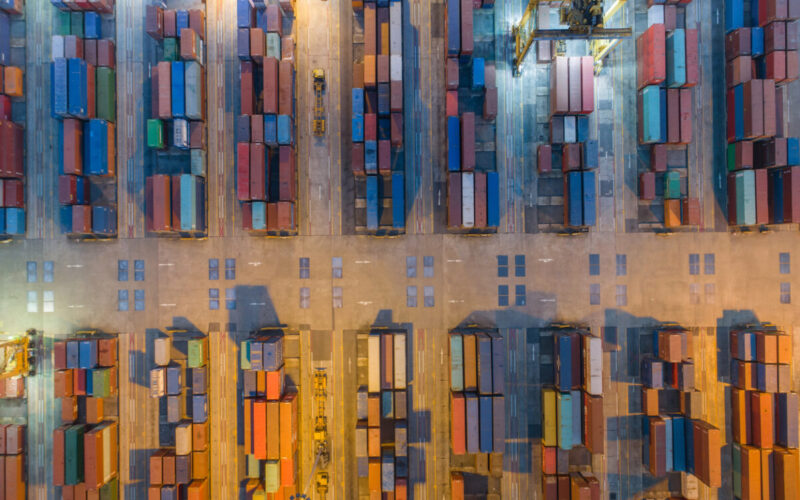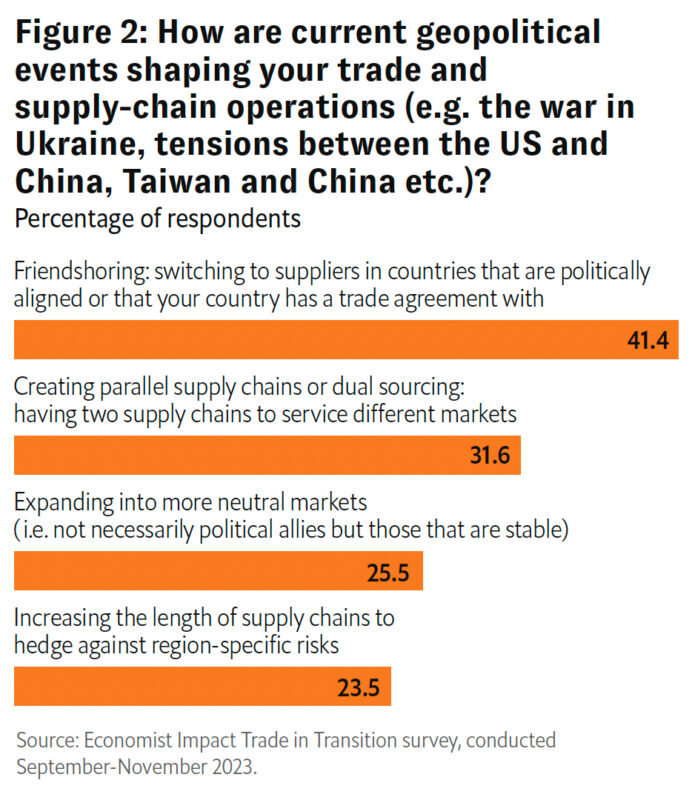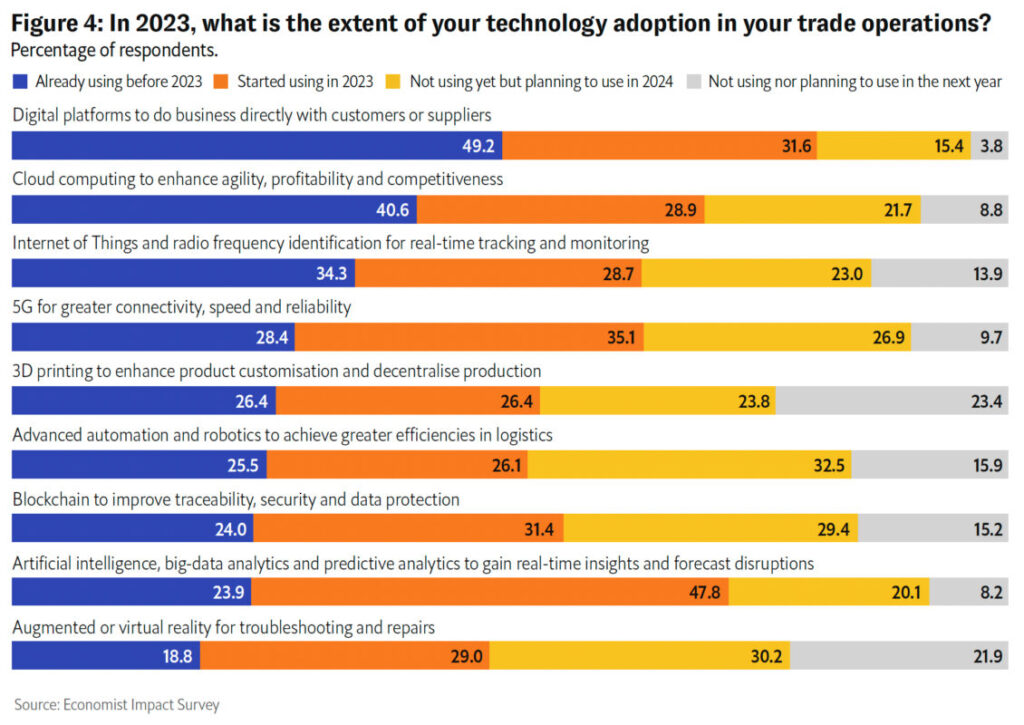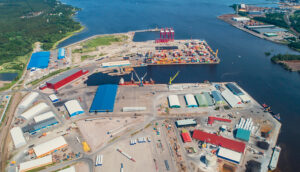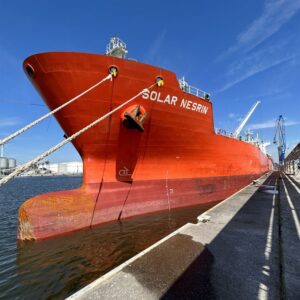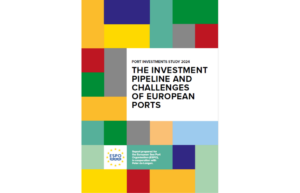A new research from Economist Impact and DP World has revealed that European businesses are deploying innovation and technology in supply chains to counter a shifting geopolitical and trade landscape.
The annual ‘Trade in Transition‘ study captures the perspectives of trade experts and senior executives globally.
The global survey found technologies that improve supply chain efficacy and resilience to be the main source of optimism for a third of European business leaders when asked to assess the future of global trade.
READ: Navigating Tomorrow: The European Supply Chain in 2024
European businesses generally have an optimistic outlook for 2024, foreseeing an expansion in both imports and exports despite geopolitical uncertainty and economic challenges, according to the report.
This is attributed to executives’ belief that technology will transform the efficiency and resilience of supply chains in tandem with agile supply chain strategies.
With growing concerns of political instability, inflation, and a downturn in key markets, European businesses are reportedly actively reconsidering risks across their supply chains, by deploying technologies such as Artificial Intelligence (AI), alongside agile supply chain strategies such as friendshoring and dual resourcing.
Other key highlights of the ‘Trade in Transition’ study include:
- Widespread adoption of AI: Companies are taking advantage of AI to reduce trade costs, enable better resources, supply chain planning, and reduce disruptions. 33 per cent are using AI to forecast demand and 36 per cent to optimise inventory levels.
- Future technologies: In the coming year, businesses plan to incorporate advanced automation (33 per cent), augmented or virtual reality (30 per cent), 3D printing and blockchain technology (24 per cent and 29 per cent respectively) to enhance efficiency, traceability, security and data protection. This builds on tech advancements made last year, with nearly half of businesses using AI, big-data analytics, and predictive analytics for the first time in 2023, enabling real-time insights and disruption forecasting.
- Strategic supply chain adaptation: European businesses are strategically navigating heightened geopolitical risk by employing friendshoring (41 per cent), establishing parallel supply chains (32 per cent) and expanding into neutral markets (26 per cent). These trends are driven by a desire to lower transport costs and reduce supply chain disruptions.
- Consolidation trend: A third of businesses are opting for fewer suppliers, marking a 22 per cent increase from the previous year. This trend towards consolidation is driven by a desire to reduce supply disruptions, even as businesses grapple with the trade-offs between diversification and control, and risk management. Diversification remains the most popular approach to geographical reconfiguration, with 35 per cent of companies using it to build resilient supply chains.
- Trade hurdles in 2024: Businesses face significant challenges in exporting and importing due to transport expenses (25 per cent), shortages of vital production inputs (21 per cent), and concerns about rising inflation and economic unpredictability (28 per cent). Uncertainties surrounding tariffs also remain a substantial concern, with 21 per cent expressing apprehension regarding exports and 20 per cent concerning imports.
READ: Realising 5G Smart-Port Use Cases With a Digital Twin
Rashid Abdulla, CEO and Managing Director for Europe at DP World, said: “In an evolving geopolitical and economic landscape, European companies are acknowledging the importance of technology in strengthening the efficacy of supply chains, as well as the ability to anticipate disruptions.
“This shift towards emerging technologies is not just a response to challenges, it’s a narrative of resilience, adaptability and a steadfast commitment to shaping a future where innovation is the bedrock of success. Critical to this will be navigating the developing regulations of the EU tech industry.”

